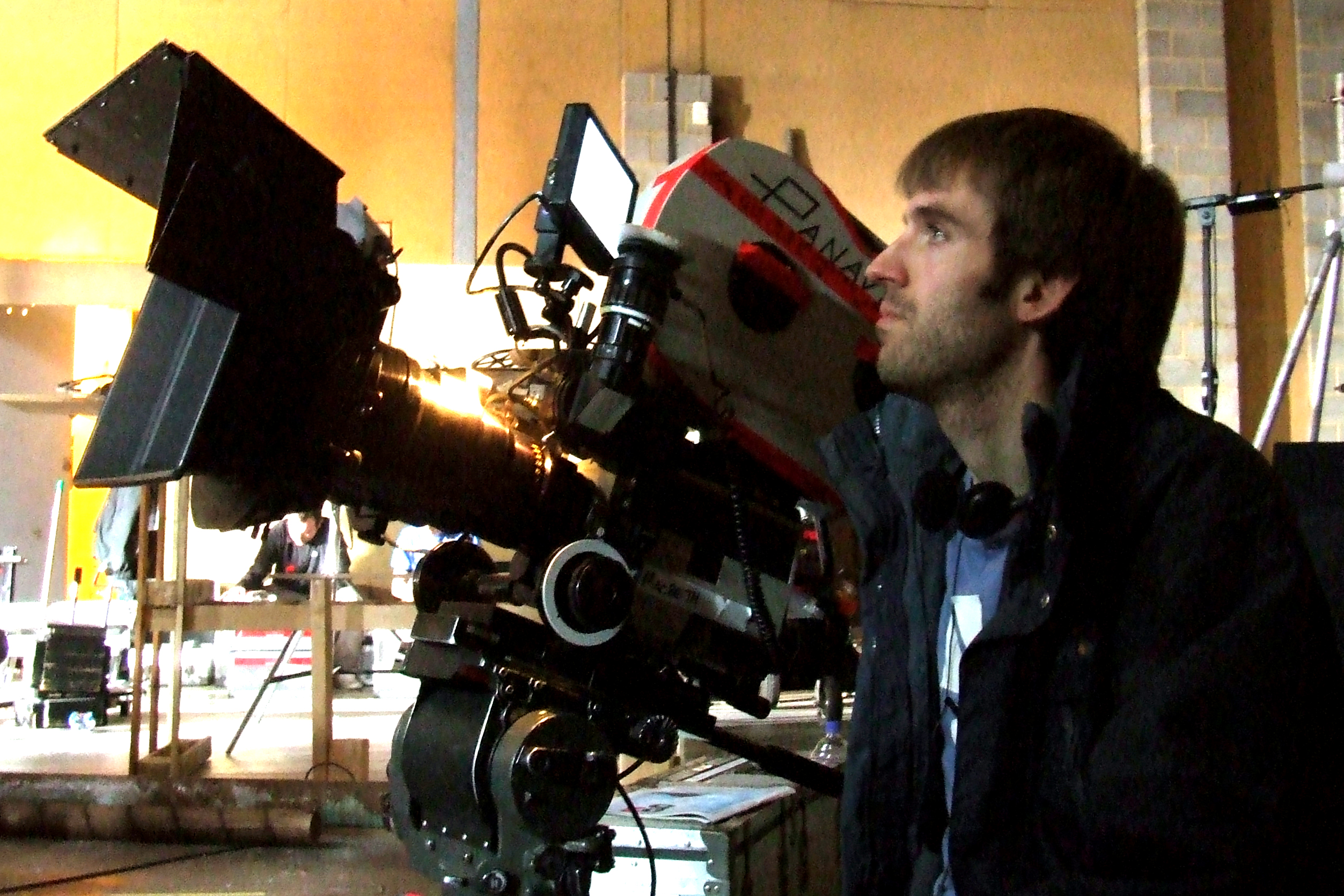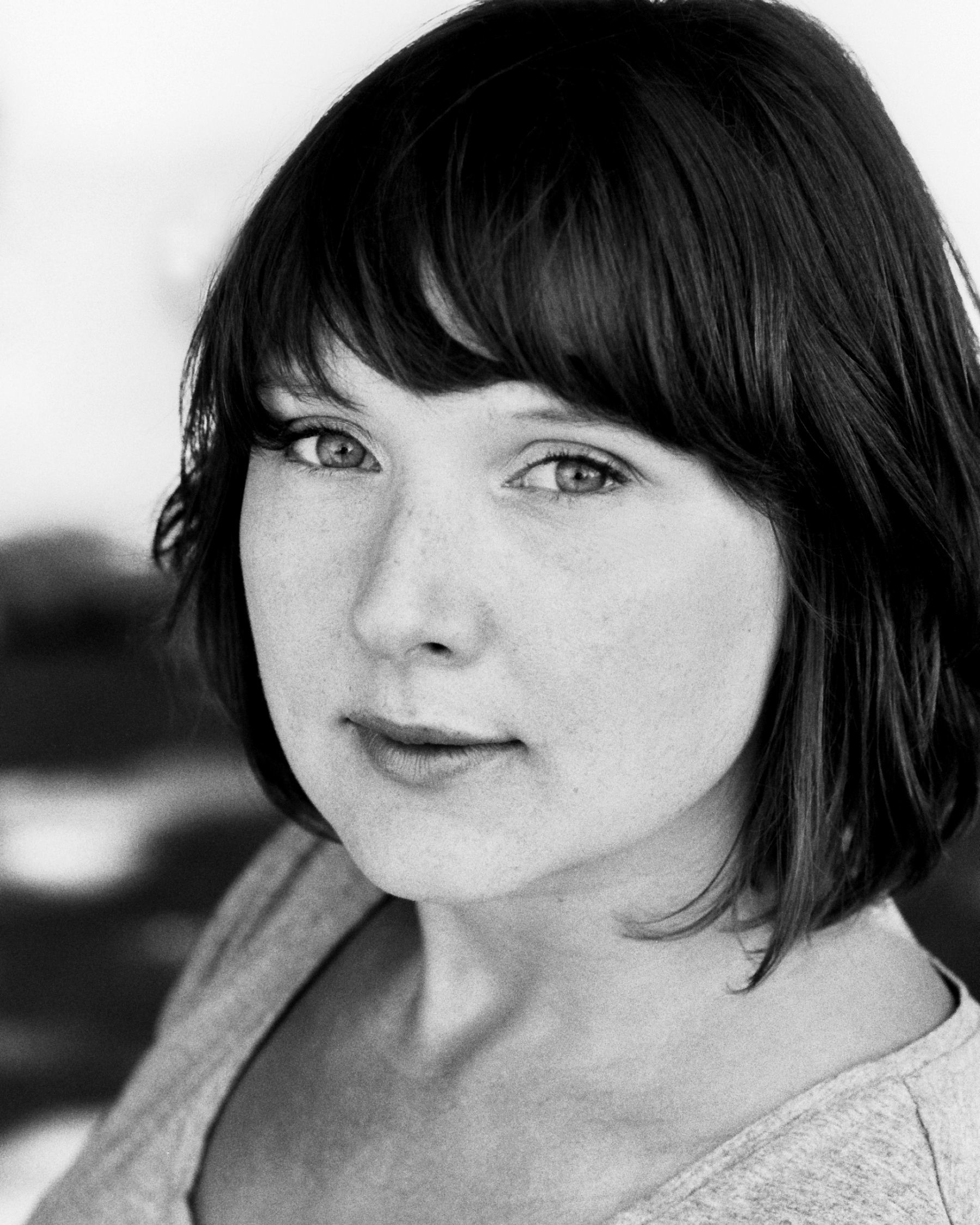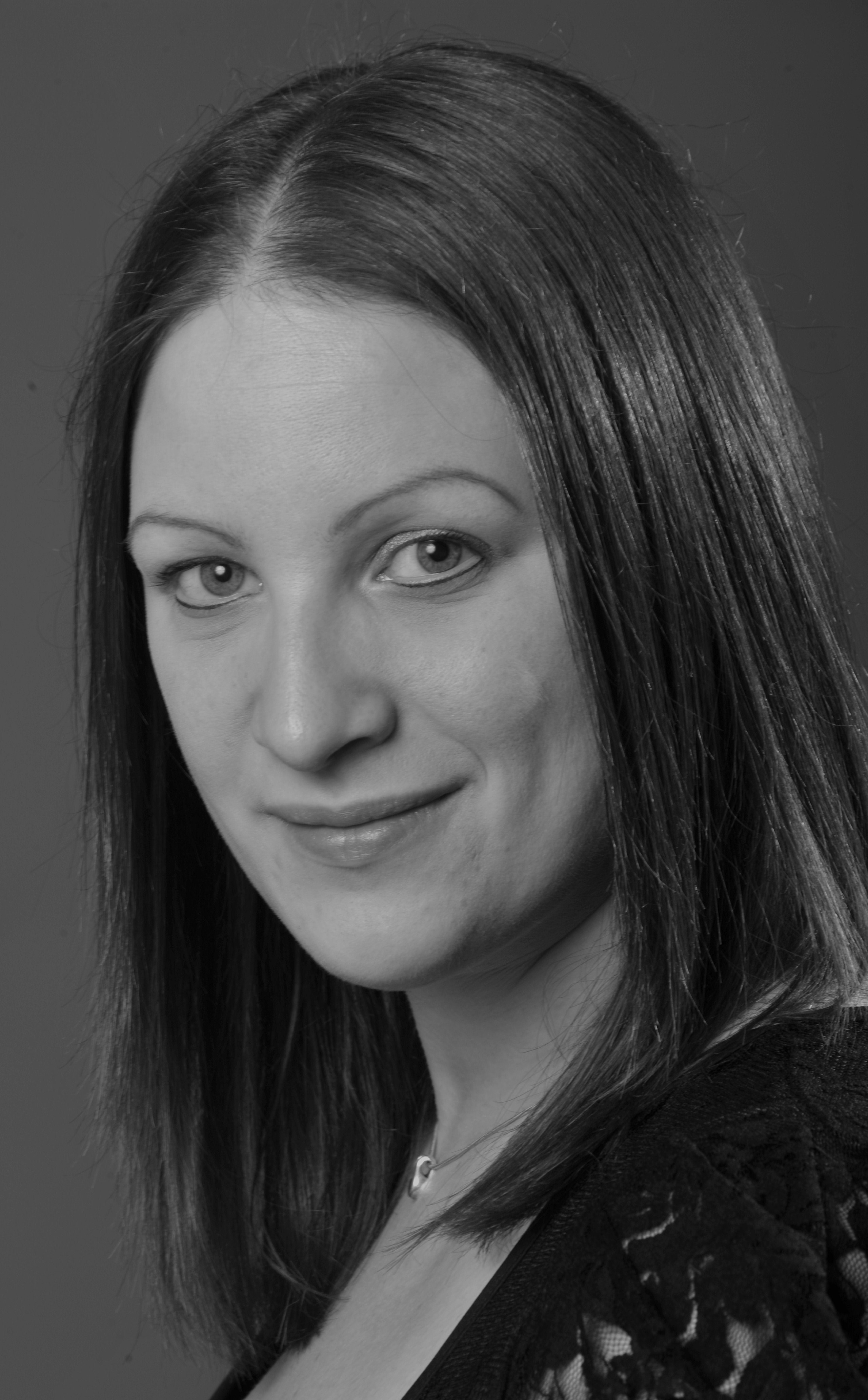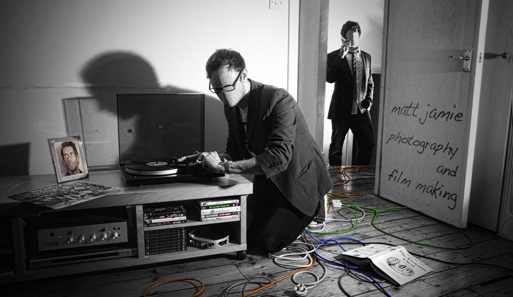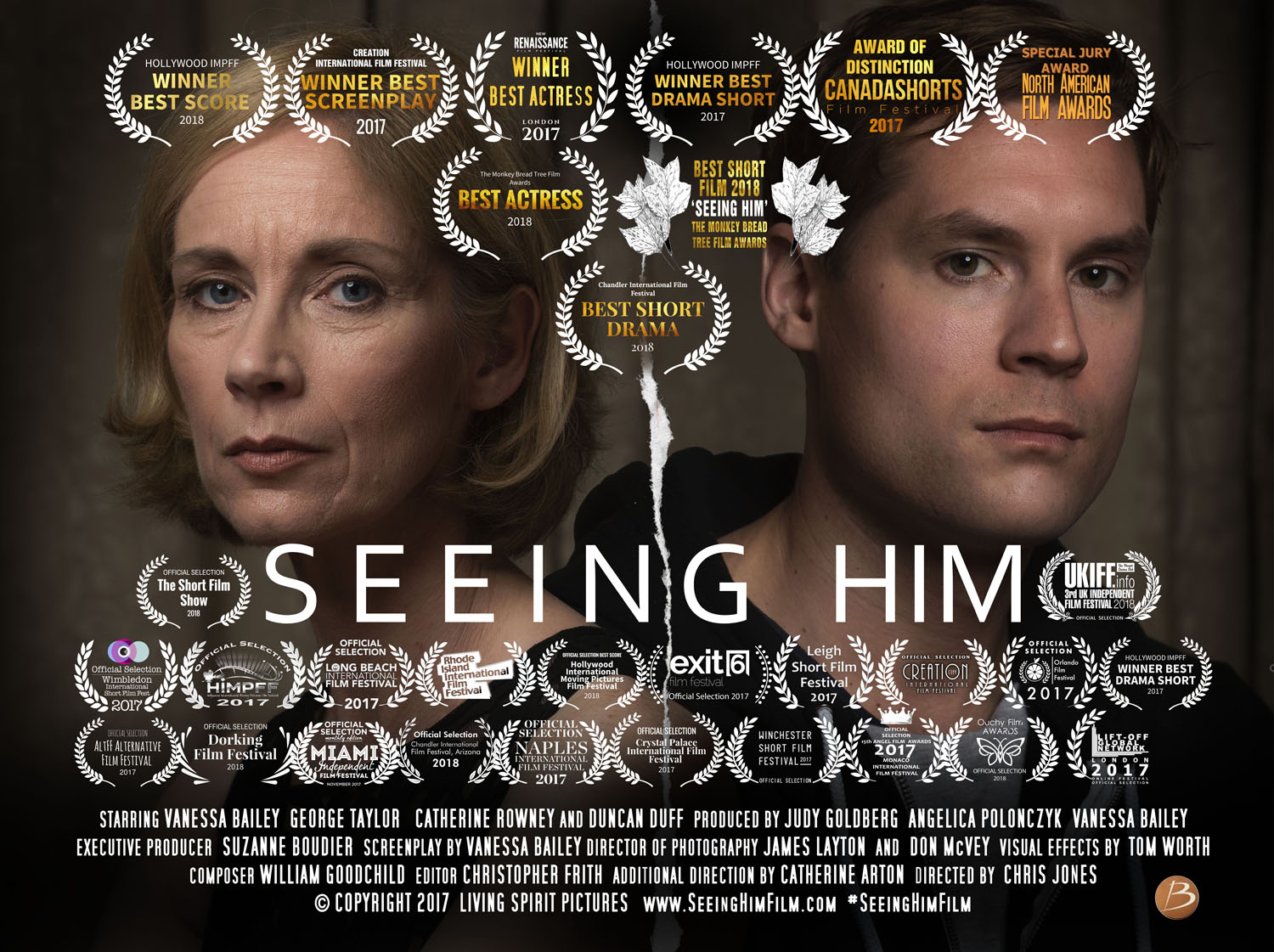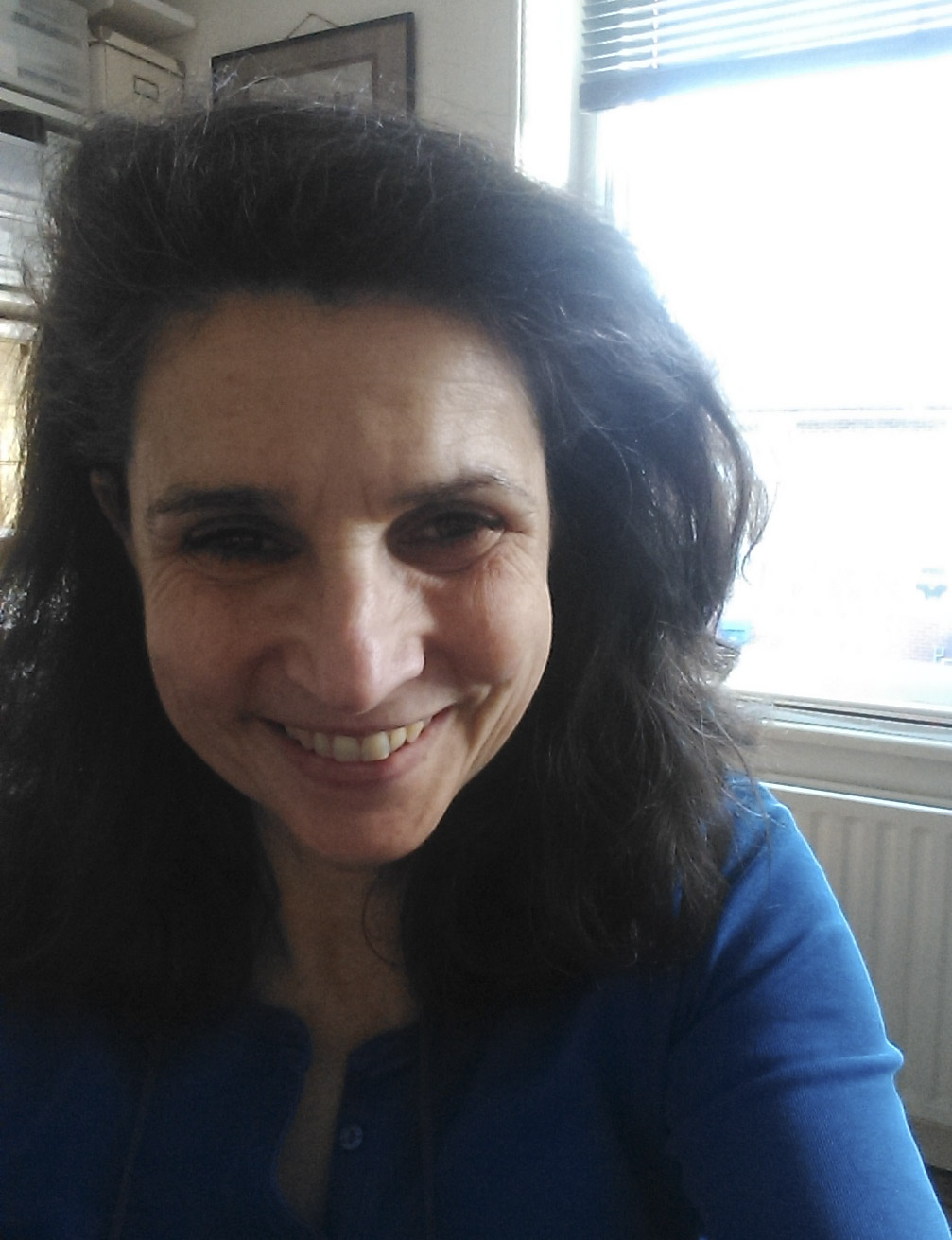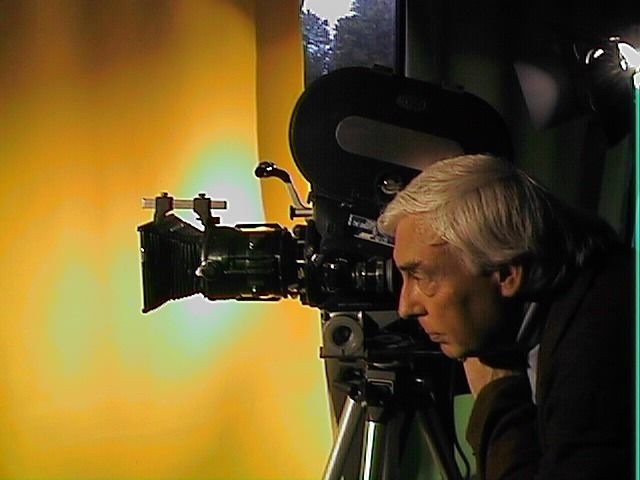ASK & DISCUSS
INDEXDoes your screenplay meet the Bechdel test?
11 years, 10 months ago - Dan Selakovich
I ran across an interesting TED talk today about female characters in film. You can watch it here:
http://www.ted.com/talks/colin_stokes_how_movies_teach_manhood.html
Colin Stokes has his brain stuck in our media and how it may be shaping his kids. This is an excellent TED talk. I encourage you to watch it.
Beside many great points, he mentions the Bechdel Test. Something I've never heard of. It is simply this:
Does your screenplay meet the following criteria.
1. It has to have at least two women in it,
2. who talk to each other,
3. about something besides a man.
Let's face it, that's a pretty low bar. You can read more about her and the test here:
http://en.wikipedia.org/wiki/Bechdel_test
Despite the low bar, of the top 100 films in 2011, there were only 11 films that met this criteria. I find this exceedingly sad.
Every screenplay I've ever written has a female protagonist. The novel I'm currently working on has two. I pass the Bechdel test with flying colors. I never planned it this way, I'm just more comfortable in that world. Probably having two older sisters affected me more than I'm willing to admit.
I think it's the reason I've had screenplays optioned (mostly by women producers). I also think it's the reason I've never had anything produced (yes, I have been asked by the studio brain to change the gender of a character).
Is Colin Stokes on to something? Are movies screwing with the way our kids grow up and how they see the world? Can your screenplays pass the Bechdel test? Or do your female characters only talk about the boy they are both interested in?
Only members can post or respond to topics. LOGIN
Not a member of SP? JOIN or FIND OUT MORE
11 years, 10 months ago - Karel Bata
I'm surprised at you Dean. The Bechdel Test has been around for a while.
"Four independent Swedish cinemas now tell audiences if the films they screen pass the Bechdel test... (they) get a seal of approval, or an A rating."
http://tinyurl.com/pom9thm
As a litmus test it's revealing, indeed shocking, but it's not a genuine measure of the worth of any particular film. Star Trek falls flat. As do Fight Club and Gravity.
Check out the Bitch List:
http://thebitchpack.wordpress.com/the-bitch-list-2013/
11 years, 10 months ago - Daniel Cormack
I agree with you, Megan, that to some extent young and inexperienced filmmakers post casting descriptions which, rightly or wrongly, are unlikely to appeal to actors and in fact are likely to annoy them.
However, I think it's worth noting that there can sometimes be an artistic justification for non-specificity. On a basic level, perhaps actors want their characters to have names as for their role to have a generic title may make it appear that the role was rather small or possibly even a background one, even if that is not the case. Yes, there is still laziness going on, but this topic comes up so frequently that if someone hasn't learnt how to make a role appealing, then they're probably very inexperienced or very stupid and therefore not worth losing sleep over. But sometimes, I think it's a bit like actors sizing up a film role by counting how many lines they have. It's looking at filmic art in completely the wrong way.
For me, one of finest writers about women and relationships between women is Samuel Beckett, but in many of his plays the characters are identified only by generic titles and stripped of a great deal of their specific background details. And yes, a lot of them are about mother/daughter relationships: I still don't really get the problem here!
And, as for Dan's point, I did also find the role worked better as a female role. Not because women are intrinsically more interesting, but due to the way the gender change heightened and added contrast to some of the themes.
At the end of the day it is regrettable that there aren't more compelling female roles, but the power is in your hands to change that by writing and producing those films. Isn't that what Shooting People is all about?
11 years, 4 months ago - Neil Oseman
I recently subjected my films to the Bechdel Test. Here are the results: http://neiloseman.com/?p=5133 Despite making a conscious attempt to alternate the gender of my lead character in each film I make, the test reveals I'm not doing nearly enough to create a gender balance. A very eye-opening experience, and one which I'm sure will impact my future work.
11 years, 10 months ago - Daniel Cormack
I'd see it as a thought-provoking philosophical question, rather than a scientific test and to raise it to such a level seems a little absurd.
If men (or indeed women) want to watch homosocial movies where men are the main protagonists and women are peripheral then there is nothing intrinsically unethical about this.
A more positive way of looking at it would be to consider that perhaps, by implication, women are an underserved audience and that there may be a market opportunity in making films that appeal to them.
11 years, 5 months ago - Peter Proniewicz-Brooks
It is a great test for producing headline grabbing figures, but the figures are headline grabbing enough if you apply more sensible criteria.
It is not entirely useless as a useful analytical tool, but it does fail a surprisingly high number of films that pass much more nuanced tests and analysis, and can be passed in incredibly sexist ways.
For actually judging the merits of a script, or even helping write it is at best useless and at worse actively damaging.
11 years, 10 months ago - Megan Hockley
As an actress reading through independent film casting breakdowns several times a week, I am constantly depressed at the lack of female representation. We're told that men make up the majority of cinema audiences, so Hollywood studios pander to them with male-dominated casts. So why on earth are supposedly independent film-makers - especially film students - who have the freedom to work outside mainstream parameters, so often making films where the female characters are 2 dimensional girlfriends, wives & mums serving a male lead?
As an exercise, Shooters, I encourage you to look through the casting bulletin and find the most common female role names advertised. I can guarantee that they are 'Mum' and 'Prostitute'. Yep, these people don't even get a first name. Way to reinforce that old madonna/whore trope. What's the point of art if it doesn't change anything? It's just lazy, reductive rehashing of work that's been done and done and done.
11 years, 10 months ago - Allan (Mac) McKenna
It sounds curious Dan, as though you're as sexist as the next writer (for expediency? this isn't clear) but are aware and concomitantly concerned about it. I find it odd that you recall quite blithely (I think that's the word) that your female characters tend to be 'wife/girlfriend, a mum, or, in one case, even a prostitute.' And as you add the question is whether that is ALL they are. I say I find it odd because I've always tended to lean the other way. And not consciously. Being (possibly excessively) hetero, I tend to focus more on the women, usually making them amalgams of women I've known. I find it odd that hetero male writers aren't all more like me. They're much the more interesting and NICER (you know what I mean by that) of the genders. Some exceptions of course like Thatcher (et al) but as a generalisation I think the female gender, especially prior to puberty, are the nicest people on the planet. And, defensively if you like, let no-one dare to question my motives for saying that.
11 years, 10 months ago - Megan Hockley
Believe me, the relative lack of female roles is not down to competition. Before one even gets to the stage of applying for a job, in almost every casting bulletin I read, over 50% of the roles are male; most typically it's 70-80%. Considering there are significantly more female actors than male, this seems a poor use of resources if nothing else!
On the prostitute issue, I have to wonder why it is such a common role type in low budget films. I don't recall seeing any rent boy roles being advertised. I accept a character can be a prostitute as well as many other things - just as a mother or wife can be many other things - but when a role is actually *called* 'Wife' or 'Prostitute', what is that telling us?!
Ellen Ripley is a mother: this, in fact, is a key storytelling fact in Alien. But just as no-one would start by describing John McClane as a 'father','mother' is never the first thing anyone say when describing Ripley.
11 years, 10 months ago - Dan Selakovich
Megan, your posts have reminded me of a short I wrote and directed (that's been in post forever and a day now.)
One of the juicier characters was originally written as a male. A well known character actor friend of mine really wanted to play it, but had to back out because of a "real" job. Partly because he was stuck in my head as this character, and partly because I couldn't find a male actor of his caliber to play the part, I re-wrote it as a woman. It turned out MUCH better. It's the scene everyone comments on. It went from a 55 year old male to a 35 year old Japanese woman, and the dynamic of the entire film changed for the better.
I just wonder how many of those casting notices you see would be better if the male characters were female. As Allan points out; women are just more interesting to write (and probably more interesting in general). Perhaps because we are male. I don't know, but it's certainly more fun to write female characters.
11 years, 5 months ago - Deborah Klayman
Hi all,
I think the fact that the mere mention of the Bechdel Test sparks these kind of debates makes it a worthwhile consideration. Alison Bechdel was making an observation about female representation when she penned 'The Rule' back in '85, and the point she raised in that short cartoon is still clearly an issue twenty-some years later. That makes it relevant, and that makes any discussion in the artistic community (and audience) about representation of women incredibly valuable, not only for actresses and female writers but for society as a whole. Cate Blanchett's Oscar acceptance speech addressed that fact this year, and although things have marginally improved since 'The Rule' we are, as others have noted, more often than not still 'wife', 'mother', 'girlfriend' and 'mistress' as generic types.
I think the problem is, women are not a minority but are still treated as such! The majority of the theatre-going audience are women, women buy the majority of tickets, and yet they are expected to watch endless stories about men that feature female characters, albeit often interesting and nuanced ones, who serve a male protagonist. We as a society continue to look at everything with a male gaze, women included, and if discussing the Bechdel test can challenge that or push people to create more interesting, innovative work with female characters who are as complex and varied as women in real life, that is a huge plus.
There are still fewer roles for women, fewer female writers and directors, and fewer women at the top of all organisations. We all need to do more. That's not to say 'shoehorn a woman in', and that's one of the things I like about the Bechdel Rule - that is not enough. The women, in addition to having names, have to have dialogue of consequence that does not just speak of their male friends/relatives/lovers. It ensures that, in order to pass the test, these female characters are talking about the other aspects of their lives and experience. Surely everyone's mother has a name and other interests beyond her husband/son? Rounding out female characters makes them real, which might make the audience connect with female-led, female-focussed films rather than seeing them as 'chick flicks'.
Just my two cents :-)
Debs
11 years, 4 months ago - Chris Bairstow
Hi
I learnt about The Bechdel Test a couple of years ago when I saw this video by Anita Sarkeesian.
http://www.feministfrequency.com/2012/02/the-2012-oscars-and-the-bechdel-test/
As Anita quite clearly states, passing The Bechdel test has nothing to do as to whether a movie/ film/ tv show etc is good, either critically or commercially, or whether it appeals to male and/ or female audiences, but it's about starting a process of change for more meaningful representation of female charters in stories.
She also has some very interesting thoughts on the development of female characters in video games and has given a TEDxWomen lecture on cyber-bullying as a result of her own online experiences.
Regards
Chris
DoP www.chrisbairstow.com
11 years, 4 months ago - Allan (Mac) McKenna
Hi Dan - I'd almost forgotten I'd written the above contribution until finally getting round to reading the 'Bechtel Test'. Then I had a thought. One of my/your all-time faves would fail and fail badly. I'm thinking of Sweet Smell of Success. Well, OK 1957 and all that (and most of the bad bits in the film were down to the 50s/Studio ethos in my opinion) and then I realised more specifically this was because all the female characters are weak by comparison with the men. Even the one who tears Falco/Tony Curtis off a strip in public - 'you may now make a noise like a hen Mr Falco; you have just laid an egg' (great line) then turns to her husband and says 'this is the cleanest thing you've done in years'and then ruins it by waiting for him to pick up her coat and says 'take me home'. In fact all the female characters are weak especially the weakest of all the lead, Susan Harrison who appears to have done little else since. And this I suspect was intentional. After all, the bums-on-seats names, Curtis and Lancaster had cost the Studios a lot of money. I suppose our 'hero' Alexander MacKendrick must take some responsibility for this. But you know more than me Dan about the extent and power of studio interference in these times.
11 years, 4 months ago - Dan Selakovich
HA! It absolutely would fail miserably, Allan. But there's another test called "The Selakovich Test" that has a higher bar. There's only one rule: 1. Is it good? One thing I love about "Sweet Smell" is the fact that Susan Harrison's character finally stands up to her powerful and bullying big brother. So I wouldn't call her weak, in the end.
It got me thinking about pre WWII films compared to post. Tons of strong women before. Perhaps because until 1938 or so, most screenwriters were women. Or perhaps the fact that here in America, most women had to leave the factories once the war was over, and that changed the cultural dynamic.
I'm frankly a little surprised this thread got any notice, much less been resurrected months later. OR that the test would be the least bit controversial.
11 years, 4 months ago - Bruce M. Foster
Read Molly Haskell. Quite a high percentage of editors are/were womenm if my memory serves me.
11 years, 4 months ago - Dan Selakovich
True, but that's changed a lot over the last 20 years, I'd say. Especially in television. I would certainly say that absolutely ALL of my favorite editors are women. Easily all of my top ten editors in the last 5 years are women, and throughout my professional life, very few male editors have made it on that list. In fact, it was one scene in "Bonnie and Clyde" that made me want to become an editor (and probably not the scene you're thinking of), edited by Dede Allen.
11 years, 10 months ago - Dan Selakovich
I think the point of the Bechdel test IS the low standard, yet most films still don't pass it.
I'm certainly not bragging about my own work. Far from it. My point in posting was simply to get people to think about their writing. Certainly you can have an excellent film that doesn't match these criteria. On the other hand, you might have something like "I can't believe you're not dating James! He's a successful lawyer and so good looking. He really likes you!" And other drivel that Hollywood pumps out by the tank full. Even in big award winners like ARGO, which doesn't pass the test, if the writer were more aware wouldn't there be more of a possibility to write well rounded female characters? I just don't think male writers give it much thought.
The larger issue in the TED talk is that heroines are simply missing from kids movies. For me, it's the reason I love Film Noir. Developed women characters. When I think back to Film Noir or comedies of the 40s and 50s and the strong female characters then, I have to ask; what happened?
11 years, 10 months ago - Dan Selakovich
I don't see the Bechdel test as some feminist manifesto, Vanessa, but simply something that gets one thinking about female characters, and could that make us better writers overall. I certainly don't see it as something that eliminates men from the creative process.
I had no idea this little thing was so controversial!
11 years, 4 months ago - Dan Selakovich
HA! Didn't mean to side-step. Sexism in Hollywood is a pretty obvious beast. To compare now and then is a tough one. While more women were working into the sound era, the sexism was blatant. Most animators, for example, refused to work with women and women could only get jobs as background painters (who were nearly 100 percent women). But a woman was the one who unionized the animators. So go figure. Studios in the 30s and 40s would invite their theatre managers out to Los Angeles, and forced background players and dancers to "entertain" them. There was not much a wannabe starlet could do, as the studios owned the town--including the police force. Then again, Mae West was offered a contract by Paramount when she was 40. That would be unheard of today.
The thing about Hollywood today, is that most studio heads (including women studio heads), think that only 14 year old boys buy movie tickets. Even Twilight is seen as an aberration (shockingly). It is no doubt a "boys club" unless they think they can make a lot of money off of you. Then, like Hollywood of old, gender doesn't matter. So it's a catch 22 of sorts. How can you be a proven money maker if they don't hire you in the first place? Currently I know producers that won't hire a woman 1st A.D. because they think the men on the crew won't listen to them or take them seriously. It's fucking nonsense.
I'm reminded of a story about a woman who asked a Buddhist priest, "How can women be treated equally to men?" The priest answered, "That's easy. Come back as a man in your next life."
11 years, 4 months ago - Dan Selakovich
I'm just guessing about pre and post war sociology. But yes, women did have a huge role in not just writing, but producing. I live about 4 blocks from the old United Artists studios, which was started by Mary Pickford and her husband, Douglas Fairbanks, and convinced Charles Chaplin to join as well. The old UA studio lot (actually Clune studios in 1915, but UA made their home there in 1920) sits right across the street from Paramount, and is the oldest studio lot in America (now under the name Raleigh Studios). So I'm surrounded by the history of Hollywood in a very real way. I spent nearly a year at Raleigh cutting a picture back in the 80s, and loved the lot as well as the history of early Hollywood that was started there. Women were about 80 percent of screenwriters until about 1933, when the playwrights in NYC saw how much money the ladies were making. By about 1938, the power had shifted toward the men.
Most people working in the Hollywood industry today don't know, or care to know, film history much less the behind-the-scenes operations of film history. I taught for a short time at a film school here, and was amazed at how the students didn't know or care to know about films that came before 1990. It took me showing Tarantino films, then showing the films he borrowed from in a very big way, just to get them interested. After all, if you're going to steal you have to know how and why, and not just copy out of ignorance. But that's a gripe for another thread.
11 years, 10 months ago - Dan Selakovich
Not in the Screenwriting section: because SP didn't give me that option. I agree, it should be.
11 years, 10 months ago - Dan Selakovich
Ha! On the unrelated note: exactly why I prefer dealing with an actor's manager than agent. Managers seem to have an actor's career in mind. Agents have the actor's fee in mind.
11 years, 10 months ago - Daniel Cormack
"All art is quite useless".
This is a wider debate, but I feel that a good film should provoke emotion, thought and debate. If it aims solely to achieve a narrow pre-determined real world objective, then it is not art, but propaganda.
It's unfortunate that the ratio of roles available on Shooting People matches the wider stereotypes in films, but I'm sure that there are still interesting female roles appearing on the bulletins regularly. Perhaps they are more sought after because it is so.
You also have to consider that there are more actresses than actors and so the ratio of interesting roles is going to be smaller and actresses (and especially older actresses) are therefore going to be disappointed more frequently.
I remember one (female) casting director advising me to change the genders of some of the roles I had written for the expedient reason that "you are more likely the find a good actress to play the role on the budget you have".
11 years, 5 months ago - Matt Jamie
I think the idea of changing a character from male to female is certainly worth considering sometimes, as I think we are almost conditioned to write certain roles as male or female simply because we are used to seeing them portrayed in a certain way. But it's certainly not a good way to "fix" a film to redress the balance. For example, at the moment I'm working on a script which is in part looking at the world of short films from within the world if a short film - the protagonist has a girlfriend who is just called "girlfriend" (even in his phone) just to make a point about this. But obviously by making that point I'm also perpetuating it... And if I reversed the genders so the protagonist was female (with a "boyfriend") it would be interesting but still would fail the bechdel test as the relationship is a major part of the story. But I still think it's a useful tool to use when writing to make one ask questions about what your characters are talking about and representing. @proresting is worth a follow on twitter - she flags up some of the often amusing but largely depressing castings for women posted on genuine uk audition sites...
11 years, 10 months ago - Daniel Cormack
I didn't write those films, so I can't directly take the credit / responsibility, but I did chose to direct them. Personally, I think they stand up pretty well as regards representations of women, but if someone thinks they are sexist then I'd happily entertain their arguments (probably better via private message though as I doubt most people are that interested).
I have a different test. My contention is that boring people are under-represented in films. And in public life. And in the boardrooms of our major companies. In fact, almost everywhere.
If fiction is to be truly representative of real life we need more boring people. And more boredom. Although I already excel in this field, I am now publicly committing to using more boring people in my films.
11 years, 10 months ago - Eoin Maher
The Bechdel Test has been dismissed by many because of its low bar/ vague criteria. Some great works with very strong female roles who don't interact with many other women wouldn't pass but on the other hand some with very poor female characters do. The point of the test however was not to pass or fail it but to show despite the test being clearly as flawed as this one is that most films will not pass it. We need a higher standard because we can't even get a pass on three simple questions and thats shows how bad we are. Passing the Bechdel test isn't something to be highly proud of, being aware of its existence is whats important. People should't be working to pass it as though that makes your work pro women but the test makes you stop and think is this an honest portrayal of women - you may still fail after.
My own film would fail and fail miserably but thats cause it has no women in it. Simply because its a short about a one night stand between to men, there are no other characters but them. Doesn't make it anti-women and changing so it passed would ruin the film.
Just one last thing as I brought up my film, GLADD have created their own version of this test for representations of gay people. Its call the Vitto Russo Test and is equally as low a bar to pass. However the absence of gay people from a film isn't as strange as the absence of women. So it looks at when their are gay characters in the film what happens. Not nearly as important as the Bechdel Test of course but has equally low standards.
11 years, 10 months ago - Vanessa Bailey
Ah - the old Bechdel Test! Gotta love it. There are some great things about it to safeguard from always having women as the 20 year-old totty running around with a gun in a wet Tshirt or being consigned to a range of stereotypical, decorative add-ons such as tart-with-heart, kick-ass corporate cougar or abused wife I get slightly annoyed with the set of hoops it also sets up for women to jump through. And scripts aren't black-and-white. There may be dialogue where women are ostensibly talking about men, but this dialogue may actually have a huge subtext that is taloking about other issues, too. Or maybe those women's story is to do with talking about men (let's be honest - straight women talk about men. A lot. And often quite intelligently/insightfully/amusingly. It's still their story and it's still valid.
I completely agree with Daniel about getting out there and making the films that are weighing on your heart - and if that includes re-dressing the balance with "interesting" female characters (I dislike the term "strong" as that infers the women can only ever be ball-busters or triumphant but often a broken, weak or conflicted character is more fascinating to watch). I did it (scarily) with Three Days, which most probably won't pass the Bechdel Test (but then, I didn't set out to write a story to pass a test I set out to write a story about a woman over 40 struggling not to fall in love with the wrong person) but which I'm extremely proud of (so far! though it's still in edit!) https://www.facebook.com/ThreeDaysFilm
Shock, horror - I'm working with men. Does that make me a traitor to the feminist filmmaking cause? The jury is probably out on that one. But I feel privileged to be working with highly talented men who are passionate and creative and brilliant to work with. And privileged to be working with highly talented women who are passionate and creative and brilliant to work with. The team is made of people, not genders! *steps down from soap box with tongue slightly in cheek* :D Best to everyone - let's keep trucking, doing what we love! x
11 years, 5 months ago - Colin Metcalfe
Does this mean Editors are going to bet browbeaten for cutting out the one scene that allows a film to pass the test!
11 years, 4 months ago - Susi Arnott
For me the point is not whether or not a given individual film meets the criteria, but that the PROPORTION of films on offer in a given situation is often incredibly low. That's a slightly different issue.
Not wanting to take the discussion away from editing and gender, though - for better or worse, women can have massive creative input without being the visible 'director' of other people.
11 years, 4 months ago - Bruce M. Foster
Bechdel Test #2? Is the non-male centric topic about something other than shopping or the results thereof?
11 years, 4 months ago - Allan (Mac) McKenna
Fascnating stuff Dan. You come across as a sort of Hollywood 'guru' if there is such an animal. But - you knew there'd be a 'but' didn't you - wondering why you seemed to side-step the issue of sexism generally. All of Hollywood - to my untrained eye - appeared to be inhabited pre-1950 by much more 'ballsy' women (you know what I mean) than later. Is sexism more of a problem now than then, Germaine Greer et al notwithstanding?
11 years, 4 months ago - Allan (Mac) McKenna
Didn't know most pre-war screen writers in the States were women Dan. That's interesting. Almost as interesting as why I didn't know- you with me? I think it much more likely why female characters were stronger than anything to do with war work. Although this is a guess of course. The point is (I think!) that the Bechdel test should be irrelevant. If one or other of the genders is weaker this suggests sexism and is self-evidently a serious flaw in the writer's craft. But then male sexism is still a serious flaw in modern British society as any sociologist will tell you. The stats prove it - and quite scarily.
11 years, 10 months ago - Daniel Cormack
PS. When I think back to my films I find it hard to recall a character who wasn't a wife/girlfriend, a mum, or, in one case, even a prostitute. The question is more whether that is ALL they are.
Does a woman necessarily need to be single, childless and asexual to be a 'real' woman?
11 years, 4 months ago - Radar Music Videos
Surely the point of the Bechdel Test - whenever you find out about it - is:
1/ consciousness raising
and
2/ to influence current and future filmmaking
?
And is thus a Very Good Thing.
- whenever you find out about it.
11 years, 10 months ago - Franz von Habsburg FBKS MSc
Well I don't have a problem with this as my script has a female lead and her sidekick Sylvie are both WWII spies! Too busy then to discuss men unless you include talking about Hitler! This is a true story about an opera singer from Wigan and I'm delighted to have Amy Nuttall playing this part (Lesley Garrett is also singing) alongside Sylvie in www.MargeryBooth.com and I tried to get a particular woman director but was turned down by her... The reason given by her agent? She only works on her own screenplays and does her own casting. I've had to do both the basic casting and crewing to get it packaged and up on IMDb. Any other women directors out there? Now's your chance. Either come forward or stop mingeing about there being no opportunities for women directors. PS Why isn't this article in the Screenwriting section? Cheers - franz@imperialfilmproductions.com
11 years, 10 months ago - Paddy Robinson-Griffin
It's actually a test I've used in the past as a quick sanity check to see how rounded a book was before optioning discussions. Project fell through for other reasons, but you're so right about how often that low bar is missed. It's embarrassing.
On a completely unrelated note, writers, when signing up to a literary agent, do yourselves a favour and check they aren't useless lying parasites gumming up the process of getting you money and offers.
11 years, 10 months ago - Sue Shearing
I'm not at all surprised to find that so many films fail the Bechdel test.We are accustomed to seeing women in peripheral roles, and then only as the (often temporary and one dimensional) love interest. Or else as the unnamed 'Gran' or a nasty Mother or Mother in law.This is lazy, stereotypical writing.And it's plain wrong.For a start, most of us have very nice Mothers, and yes, even lovely Mothers in law!
Luckily I unwittingly passed the test when writing my films, because I am so sick of the normal portrayal of women.And it's not a women's lib thing.Women have amazing adventures too, and they don't all involve men:).




